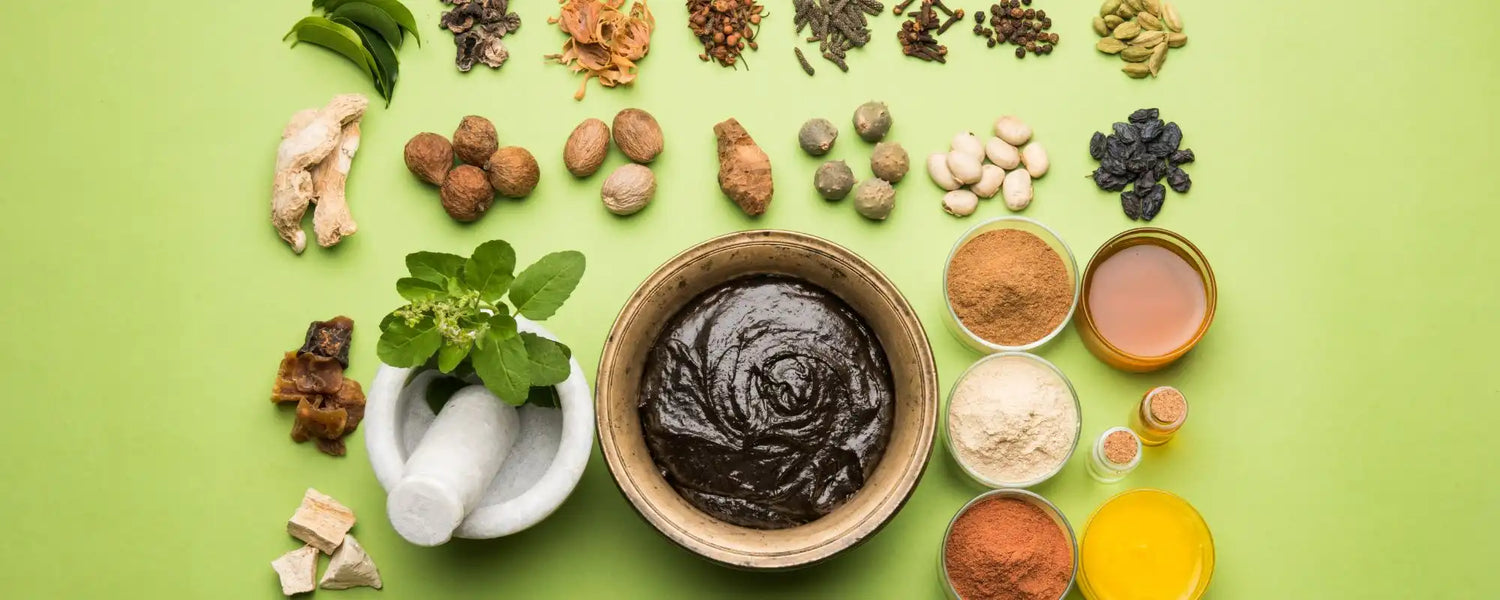Used for centuries in Ayurvedic and Chinese medicine, the Neem tree is called Azadirachta indica in Latin, and is also known as “Indian Lilac.” One Sanskrit word for Neem is “arista,” meaning perfect and complete. Ancient Ayurvedic texts refer to Neem as “nimba,” referencing the phrase “nibati systhyamdadati,” meaning, “to give good health.” Neem has been called “the wish fulfilling tree,” and “Pinchumada,” or, “destroyer of leprosy.”
Evidence of Neem’s use dates as far back as 5000 BC. According to Science Direct, “Neem is a renewable resource of various useful domestic and agricultural products, including cattle feed, medicines, soap, nitrification inhibition, slow nutrient release manure, fuel, energy, pest control, and others.”

Neem grows in India, Pakistan, China and Africa. Every part of the tree, including bark, leaves, and fruit, are used for medicinal purposes — neem oil, extracted from the seeds, has traditionally been used to treat skin infection, and the benefits of the ancient practice of chewing dried neem twigs has been confirmed by modern science. Research has identified Neem’s strong antimicrobial activity — one study reports that a mouth rinse made from Neem is as effective as chlorhexidine in reducing periodontal disease. Some scientists have proposed that Neem be used to develop anti-microbial fabric for clothing.
Neem: A Biochemical Powerhouse
While Neem contains thousands of chemical constituents, among the most important are terpenes, a huge category of plant-produced organic compounds. Terpenes account for the strong odor of plants like pine, clove, ginger, and cinnamon, and are the basis for most plant and flower essential oils. Terpenes give tomatoes their red colour, and sunflower petals their gold.

More than 70 different terpenoids, or terpenes, have been identified in different parts of the Neem tree.
More than 70 different terpenoids, or terpenes, have been identified in different parts of the Neem tree. These organic chemicals account for Neem’s insect repelling characteristic, and explains why Neem has been traditionally used to make topical bug repellent and natural insecticide. According to Medical News Today, “Neem is a strong antioxidant, neutralizing free radicals that may influence the development of some conditions.”
One single Neem terpenoid, beta-caryophyllene, has been shown to have anti-inflammatory, antioxidant, and pain-reducing benefits. Another, linalool, has been shown to have anticonvulsant, anti-seizure characteristics.
Neem for Immune Support
Science has identified Neem as an “immunomodulator,” meaning that it supports the innate immune’s system ability to self-regulate — either up, in times of defense, or down, to avoid over-activity that can lead to what is known as a “cytokine storm,” when the immune system becomes dysregulated.
Research suggests that “the ethanol extract of neem leaves showed in vitro antibacterial activity against both Staphylococcus aureus and MRSA. Another study reported that Neem has a hepatoprotective, or liver-protective characteristic in rats as efficient as milk thistle, and one research paper concluded that Neem leaf extract, “Promoted wound healing activity.”
Neem in Ayurveda
From the Ayurvedic perspective, Neem is seen as having antibacterial and antifungal properties, and is classified as a “cooling” herb. Most herbs used for activating the body’s systems tend to be “warming,” but Neem’s cooling properties calm the fiery Pitta dosha, acting as an anti-inflammatory when the body has too much heat.
Neem is often incorporated into “panchakarma” detoxification programs as Ayurvedic practitioners believe that Neem works to clean the blood and liver at deep levels — some assert that it is capable of removing heavy metals from the body. That said, always consult an Ayurvedic practitioner prior to embarking on internal cleansing.
Psoriasis is a frustrating skin condition for which Western medicine has not found a cure. While there are drugs available to manage the symptoms and slow the overgrowth of skin cells, but nothing has been discovered to stop the disease.
Psoriasis is classified as an “auto-immune” condition that causes an aggressive over-production of skin cells that creates scaling and bumps on the skin’s surface. Auto-immune conditions are believed to be the result of the immune system producing “friendly fire,” by attacking the body’s tissues. Psoriasis is associated with diseases such as type 2 diabetes, heart disease, and inflammatory bowel disease.
Ayurvedic medicine views psoriasis as an impairment or imbalance of the Vata and Kapha doshas, and suggests purification therapies to treat the conditions. One study found that a group of patients demonstrated a 53 percent cure rate with internal use of Neem and Tulsi combined with external application of Neem, Tulsi and Henna. Thirty-three percent of the same group did not have a definitive cure, but showed significant improvement — the researchers concluded that given more time, they would have seen a higher cure rate.





